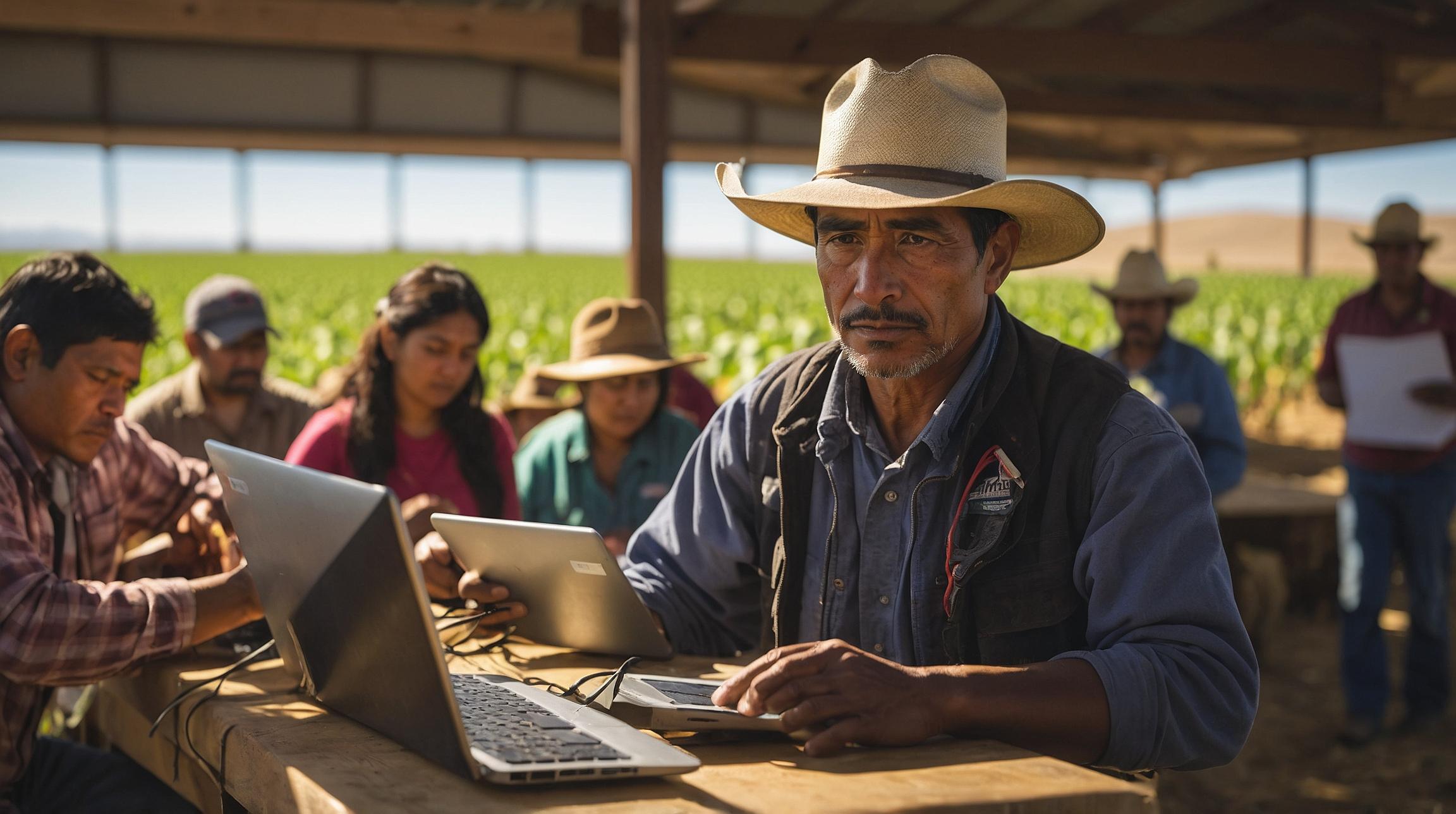Upstage’s emphasis is on industry-specific solutions and fostering an AI ecosystem led by native startups, differentiating itself through cost efficiency and tailored performance.
FinOracleAI — Market View
South Korea’s government-backed sovereign AI initiative marks a strategic attempt to establish an independent and competitive AI ecosystem tailored to local language and industrial needs. By supporting a diverse group of players—from conglomerates to startups—the country aims to leverage efficiency, specialized data, and infrastructure partnerships to challenge global AI leaders.
- Opportunities: Strengthening national security by reducing foreign AI dependency; fostering innovation through diverse participants; building AI infrastructure aligned with local needs.
- Risks: Potential underperformance compared to global AI giants; challenges in scaling models and securing sustained funding; technological gaps in GPU capacity and data access.
Impact: South Korea’s focused approach to sovereign AI development positions it as a formidable regional player, with potential to influence AI governance, data sovereignty, and industry-specific AI applications, though it faces stiff competition from entrenched global providers.
Upstage is the sole startup in the government initiative, competing with its Solar Pro 2 model. Despite having 31 billion parameters—smaller than typical frontier models—Solar Pro 2 has outperformed global competitors on Korean benchmarks and is recognized as a frontier model by Artificial Analysis.
“Solar Pro 2 aims to exceed global standards by 5% in Korean language performance, focusing on real business impact across finance, law, and medicine.” – Soon-il Kwon, Executive Vice President, Upstage
Upstage’s emphasis is on industry-specific solutions and fostering an AI ecosystem led by native startups, differentiating itself through cost efficiency and tailored performance.
FinOracleAI — Market View
South Korea’s government-backed sovereign AI initiative marks a strategic attempt to establish an independent and competitive AI ecosystem tailored to local language and industrial needs. By supporting a diverse group of players—from conglomerates to startups—the country aims to leverage efficiency, specialized data, and infrastructure partnerships to challenge global AI leaders.
- Opportunities: Strengthening national security by reducing foreign AI dependency; fostering innovation through diverse participants; building AI infrastructure aligned with local needs.
- Risks: Potential underperformance compared to global AI giants; challenges in scaling models and securing sustained funding; technological gaps in GPU capacity and data access.
Impact: South Korea’s focused approach to sovereign AI development positions it as a formidable regional player, with potential to influence AI governance, data sovereignty, and industry-specific AI applications, though it faces stiff competition from entrenched global providers.
Upstage is the sole startup in the government initiative, competing with its Solar Pro 2 model. Despite having 31 billion parameters—smaller than typical frontier models—Solar Pro 2 has outperformed global competitors on Korean benchmarks and is recognized as a frontier model by Artificial Analysis.
“Solar Pro 2 aims to exceed global standards by 5% in Korean language performance, focusing on real business impact across finance, law, and medicine.” – Soon-il Kwon, Executive Vice President, Upstage
Upstage’s emphasis is on industry-specific solutions and fostering an AI ecosystem led by native startups, differentiating itself through cost efficiency and tailored performance.
FinOracleAI — Market View
South Korea’s government-backed sovereign AI initiative marks a strategic attempt to establish an independent and competitive AI ecosystem tailored to local language and industrial needs. By supporting a diverse group of players—from conglomerates to startups—the country aims to leverage efficiency, specialized data, and infrastructure partnerships to challenge global AI leaders.
- Opportunities: Strengthening national security by reducing foreign AI dependency; fostering innovation through diverse participants; building AI infrastructure aligned with local needs.
- Risks: Potential underperformance compared to global AI giants; challenges in scaling models and securing sustained funding; technological gaps in GPU capacity and data access.
Impact: South Korea’s focused approach to sovereign AI development positions it as a formidable regional player, with potential to influence AI governance, data sovereignty, and industry-specific AI applications, though it faces stiff competition from entrenched global providers.
Naver’s strength lies in its end-to-end AI ecosystem, from data centers and cloud platforms to consumer applications, enabling seamless integration of AI into services such as search, shopping, maps, and finance. Its AI Shopping Guide leverages real consumer data to provide personalized recommendations.
“Our competitive edge is refining the model recipe and securing capital to scale, focusing on sophistication rather than sheer size to deliver globally competitive AI tailored for Korea.” – Naver spokesperson
Upstage: Startup Innovation with Cost-Effective, Korean-Focused AI
Upstage is the sole startup in the government initiative, competing with its Solar Pro 2 model. Despite having 31 billion parameters—smaller than typical frontier models—Solar Pro 2 has outperformed global competitors on Korean benchmarks and is recognized as a frontier model by Artificial Analysis.
“Solar Pro 2 aims to exceed global standards by 5% in Korean language performance, focusing on real business impact across finance, law, and medicine.” – Soon-il Kwon, Executive Vice President, Upstage
Upstage’s emphasis is on industry-specific solutions and fostering an AI ecosystem led by native startups, differentiating itself through cost efficiency and tailored performance.
FinOracleAI — Market View
South Korea’s government-backed sovereign AI initiative marks a strategic attempt to establish an independent and competitive AI ecosystem tailored to local language and industrial needs. By supporting a diverse group of players—from conglomerates to startups—the country aims to leverage efficiency, specialized data, and infrastructure partnerships to challenge global AI leaders.
- Opportunities: Strengthening national security by reducing foreign AI dependency; fostering innovation through diverse participants; building AI infrastructure aligned with local needs.
- Risks: Potential underperformance compared to global AI giants; challenges in scaling models and securing sustained funding; technological gaps in GPU capacity and data access.
Impact: South Korea’s focused approach to sovereign AI development positions it as a formidable regional player, with potential to influence AI governance, data sovereignty, and industry-specific AI applications, though it faces stiff competition from entrenched global providers.
Naver Cloud, the cloud subsidiary of South Korea’s leading internet company, has developed HyperCLOVA X, a large language model powering AI-driven products like the CLOVA X chatbot and Cue, a generative AI search engine competing with Microsoft and Google offerings. The company also introduced HyperCLOVA X Think, a multimodal reasoning AI model.
Naver’s strength lies in its end-to-end AI ecosystem, from data centers and cloud platforms to consumer applications, enabling seamless integration of AI into services such as search, shopping, maps, and finance. Its AI Shopping Guide leverages real consumer data to provide personalized recommendations.
“Our competitive edge is refining the model recipe and securing capital to scale, focusing on sophistication rather than sheer size to deliver globally competitive AI tailored for Korea.” – Naver spokesperson
Upstage: Startup Innovation with Cost-Effective, Korean-Focused AI
Upstage is the sole startup in the government initiative, competing with its Solar Pro 2 model. Despite having 31 billion parameters—smaller than typical frontier models—Solar Pro 2 has outperformed global competitors on Korean benchmarks and is recognized as a frontier model by Artificial Analysis.
“Solar Pro 2 aims to exceed global standards by 5% in Korean language performance, focusing on real business impact across finance, law, and medicine.” – Soon-il Kwon, Executive Vice President, Upstage
Upstage’s emphasis is on industry-specific solutions and fostering an AI ecosystem led by native startups, differentiating itself through cost efficiency and tailored performance.
FinOracleAI — Market View
South Korea’s government-backed sovereign AI initiative marks a strategic attempt to establish an independent and competitive AI ecosystem tailored to local language and industrial needs. By supporting a diverse group of players—from conglomerates to startups—the country aims to leverage efficiency, specialized data, and infrastructure partnerships to challenge global AI leaders.
- Opportunities: Strengthening national security by reducing foreign AI dependency; fostering innovation through diverse participants; building AI infrastructure aligned with local needs.
- Risks: Potential underperformance compared to global AI giants; challenges in scaling models and securing sustained funding; technological gaps in GPU capacity and data access.
Impact: South Korea’s focused approach to sovereign AI development positions it as a formidable regional player, with potential to influence AI governance, data sovereignty, and industry-specific AI applications, though it faces stiff competition from entrenched global providers.
Naver Cloud, the cloud subsidiary of South Korea’s leading internet company, has developed HyperCLOVA X, a large language model powering AI-driven products like the CLOVA X chatbot and Cue, a generative AI search engine competing with Microsoft and Google offerings. The company also introduced HyperCLOVA X Think, a multimodal reasoning AI model.
Naver’s strength lies in its end-to-end AI ecosystem, from data centers and cloud platforms to consumer applications, enabling seamless integration of AI into services such as search, shopping, maps, and finance. Its AI Shopping Guide leverages real consumer data to provide personalized recommendations.
“Our competitive edge is refining the model recipe and securing capital to scale, focusing on sophistication rather than sheer size to deliver globally competitive AI tailored for Korea.” – Naver spokesperson
Upstage: Startup Innovation with Cost-Effective, Korean-Focused AI
Upstage is the sole startup in the government initiative, competing with its Solar Pro 2 model. Despite having 31 billion parameters—smaller than typical frontier models—Solar Pro 2 has outperformed global competitors on Korean benchmarks and is recognized as a frontier model by Artificial Analysis.
“Solar Pro 2 aims to exceed global standards by 5% in Korean language performance, focusing on real business impact across finance, law, and medicine.” – Soon-il Kwon, Executive Vice President, Upstage
Upstage’s emphasis is on industry-specific solutions and fostering an AI ecosystem led by native startups, differentiating itself through cost efficiency and tailored performance.
FinOracleAI — Market View
South Korea’s government-backed sovereign AI initiative marks a strategic attempt to establish an independent and competitive AI ecosystem tailored to local language and industrial needs. By supporting a diverse group of players—from conglomerates to startups—the country aims to leverage efficiency, specialized data, and infrastructure partnerships to challenge global AI leaders.
- Opportunities: Strengthening national security by reducing foreign AI dependency; fostering innovation through diverse participants; building AI infrastructure aligned with local needs.
- Risks: Potential underperformance compared to global AI giants; challenges in scaling models and securing sustained funding; technological gaps in GPU capacity and data access.
Impact: South Korea’s focused approach to sovereign AI development positions it as a formidable regional player, with potential to influence AI governance, data sovereignty, and industry-specific AI applications, though it faces stiff competition from entrenched global providers.
“SK Telecom’s role is to act as a bridge between cutting-edge model research and real-world impact, bringing AI directly into everyday life through our telecom infrastructure and extensive user base.” – Taeyoon Kim, Head of Foundation Model Office, SK Telecom
SKT is also investing heavily in AI infrastructure, including GPU-as-a-Service and a hyperscale AI data center developed with AWS, alongside partnerships with Korean AI chipmaker Rebellions and global institutions such as MIT.
Naver Cloud: Building a Full AI Stack with HyperCLOVA X
Naver Cloud, the cloud subsidiary of South Korea’s leading internet company, has developed HyperCLOVA X, a large language model powering AI-driven products like the CLOVA X chatbot and Cue, a generative AI search engine competing with Microsoft and Google offerings. The company also introduced HyperCLOVA X Think, a multimodal reasoning AI model.
Naver’s strength lies in its end-to-end AI ecosystem, from data centers and cloud platforms to consumer applications, enabling seamless integration of AI into services such as search, shopping, maps, and finance. Its AI Shopping Guide leverages real consumer data to provide personalized recommendations.
“Our competitive edge is refining the model recipe and securing capital to scale, focusing on sophistication rather than sheer size to deliver globally competitive AI tailored for Korea.” – Naver spokesperson
Upstage: Startup Innovation with Cost-Effective, Korean-Focused AI
Upstage is the sole startup in the government initiative, competing with its Solar Pro 2 model. Despite having 31 billion parameters—smaller than typical frontier models—Solar Pro 2 has outperformed global competitors on Korean benchmarks and is recognized as a frontier model by Artificial Analysis.
“Solar Pro 2 aims to exceed global standards by 5% in Korean language performance, focusing on real business impact across finance, law, and medicine.” – Soon-il Kwon, Executive Vice President, Upstage
Upstage’s emphasis is on industry-specific solutions and fostering an AI ecosystem led by native startups, differentiating itself through cost efficiency and tailored performance.
FinOracleAI — Market View
South Korea’s government-backed sovereign AI initiative marks a strategic attempt to establish an independent and competitive AI ecosystem tailored to local language and industrial needs. By supporting a diverse group of players—from conglomerates to startups—the country aims to leverage efficiency, specialized data, and infrastructure partnerships to challenge global AI leaders.
- Opportunities: Strengthening national security by reducing foreign AI dependency; fostering innovation through diverse participants; building AI infrastructure aligned with local needs.
- Risks: Potential underperformance compared to global AI giants; challenges in scaling models and securing sustained funding; technological gaps in GPU capacity and data access.
Impact: South Korea’s focused approach to sovereign AI development positions it as a formidable regional player, with potential to influence AI governance, data sovereignty, and industry-specific AI applications, though it faces stiff competition from entrenched global providers.
With around 10 million subscribers as of August 2025, SKT integrates AI features such as call summarization and auto-generated notes. Its telecom infrastructure provides a unique edge by enabling AI applications in navigation, mobility, and customer service.
“SK Telecom’s role is to act as a bridge between cutting-edge model research and real-world impact, bringing AI directly into everyday life through our telecom infrastructure and extensive user base.” – Taeyoon Kim, Head of Foundation Model Office, SK Telecom
SKT is also investing heavily in AI infrastructure, including GPU-as-a-Service and a hyperscale AI data center developed with AWS, alongside partnerships with Korean AI chipmaker Rebellions and global institutions such as MIT.
Naver Cloud: Building a Full AI Stack with HyperCLOVA X
Naver Cloud, the cloud subsidiary of South Korea’s leading internet company, has developed HyperCLOVA X, a large language model powering AI-driven products like the CLOVA X chatbot and Cue, a generative AI search engine competing with Microsoft and Google offerings. The company also introduced HyperCLOVA X Think, a multimodal reasoning AI model.
Naver’s strength lies in its end-to-end AI ecosystem, from data centers and cloud platforms to consumer applications, enabling seamless integration of AI into services such as search, shopping, maps, and finance. Its AI Shopping Guide leverages real consumer data to provide personalized recommendations.
“Our competitive edge is refining the model recipe and securing capital to scale, focusing on sophistication rather than sheer size to deliver globally competitive AI tailored for Korea.” – Naver spokesperson
Upstage: Startup Innovation with Cost-Effective, Korean-Focused AI
Upstage is the sole startup in the government initiative, competing with its Solar Pro 2 model. Despite having 31 billion parameters—smaller than typical frontier models—Solar Pro 2 has outperformed global competitors on Korean benchmarks and is recognized as a frontier model by Artificial Analysis.
“Solar Pro 2 aims to exceed global standards by 5% in Korean language performance, focusing on real business impact across finance, law, and medicine.” – Soon-il Kwon, Executive Vice President, Upstage
Upstage’s emphasis is on industry-specific solutions and fostering an AI ecosystem led by native startups, differentiating itself through cost efficiency and tailored performance.
FinOracleAI — Market View
South Korea’s government-backed sovereign AI initiative marks a strategic attempt to establish an independent and competitive AI ecosystem tailored to local language and industrial needs. By supporting a diverse group of players—from conglomerates to startups—the country aims to leverage efficiency, specialized data, and infrastructure partnerships to challenge global AI leaders.
- Opportunities: Strengthening national security by reducing foreign AI dependency; fostering innovation through diverse participants; building AI infrastructure aligned with local needs.
- Risks: Potential underperformance compared to global AI giants; challenges in scaling models and securing sustained funding; technological gaps in GPU capacity and data access.
Impact: South Korea’s focused approach to sovereign AI development positions it as a formidable regional player, with potential to influence AI governance, data sovereignty, and industry-specific AI applications, though it faces stiff competition from entrenched global providers.
SK Telecom (SKT) launched its personal AI agent, A., in late 2023 and upgraded its large language model to A.X 4.0 in July 2025. Built atop Alibaba Cloud’s open-source Qwen 2.5, A.X 4.0 offers a 72-billion-parameter model and a lighter 7-billion-parameter version, achieving approximately 33% greater efficiency in processing Korean inputs compared to GPT-4o.
With around 10 million subscribers as of August 2025, SKT integrates AI features such as call summarization and auto-generated notes. Its telecom infrastructure provides a unique edge by enabling AI applications in navigation, mobility, and customer service.
“SK Telecom’s role is to act as a bridge between cutting-edge model research and real-world impact, bringing AI directly into everyday life through our telecom infrastructure and extensive user base.” – Taeyoon Kim, Head of Foundation Model Office, SK Telecom
SKT is also investing heavily in AI infrastructure, including GPU-as-a-Service and a hyperscale AI data center developed with AWS, alongside partnerships with Korean AI chipmaker Rebellions and global institutions such as MIT.
Naver Cloud: Building a Full AI Stack with HyperCLOVA X
Naver Cloud, the cloud subsidiary of South Korea’s leading internet company, has developed HyperCLOVA X, a large language model powering AI-driven products like the CLOVA X chatbot and Cue, a generative AI search engine competing with Microsoft and Google offerings. The company also introduced HyperCLOVA X Think, a multimodal reasoning AI model.
Naver’s strength lies in its end-to-end AI ecosystem, from data centers and cloud platforms to consumer applications, enabling seamless integration of AI into services such as search, shopping, maps, and finance. Its AI Shopping Guide leverages real consumer data to provide personalized recommendations.
“Our competitive edge is refining the model recipe and securing capital to scale, focusing on sophistication rather than sheer size to deliver globally competitive AI tailored for Korea.” – Naver spokesperson
Upstage: Startup Innovation with Cost-Effective, Korean-Focused AI
Upstage is the sole startup in the government initiative, competing with its Solar Pro 2 model. Despite having 31 billion parameters—smaller than typical frontier models—Solar Pro 2 has outperformed global competitors on Korean benchmarks and is recognized as a frontier model by Artificial Analysis.
“Solar Pro 2 aims to exceed global standards by 5% in Korean language performance, focusing on real business impact across finance, law, and medicine.” – Soon-il Kwon, Executive Vice President, Upstage
Upstage’s emphasis is on industry-specific solutions and fostering an AI ecosystem led by native startups, differentiating itself through cost efficiency and tailored performance.
FinOracleAI — Market View
South Korea’s government-backed sovereign AI initiative marks a strategic attempt to establish an independent and competitive AI ecosystem tailored to local language and industrial needs. By supporting a diverse group of players—from conglomerates to startups—the country aims to leverage efficiency, specialized data, and infrastructure partnerships to challenge global AI leaders.
- Opportunities: Strengthening national security by reducing foreign AI dependency; fostering innovation through diverse participants; building AI infrastructure aligned with local needs.
- Risks: Potential underperformance compared to global AI giants; challenges in scaling models and securing sustained funding; technological gaps in GPU capacity and data access.
Impact: South Korea’s focused approach to sovereign AI development positions it as a formidable regional player, with potential to influence AI governance, data sovereignty, and industry-specific AI applications, though it faces stiff competition from entrenched global providers.
SK Telecom (SKT) launched its personal AI agent, A., in late 2023 and upgraded its large language model to A.X 4.0 in July 2025. Built atop Alibaba Cloud’s open-source Qwen 2.5, A.X 4.0 offers a 72-billion-parameter model and a lighter 7-billion-parameter version, achieving approximately 33% greater efficiency in processing Korean inputs compared to GPT-4o.
With around 10 million subscribers as of August 2025, SKT integrates AI features such as call summarization and auto-generated notes. Its telecom infrastructure provides a unique edge by enabling AI applications in navigation, mobility, and customer service.
“SK Telecom’s role is to act as a bridge between cutting-edge model research and real-world impact, bringing AI directly into everyday life through our telecom infrastructure and extensive user base.” – Taeyoon Kim, Head of Foundation Model Office, SK Telecom
SKT is also investing heavily in AI infrastructure, including GPU-as-a-Service and a hyperscale AI data center developed with AWS, alongside partnerships with Korean AI chipmaker Rebellions and global institutions such as MIT.
Naver Cloud: Building a Full AI Stack with HyperCLOVA X
Naver Cloud, the cloud subsidiary of South Korea’s leading internet company, has developed HyperCLOVA X, a large language model powering AI-driven products like the CLOVA X chatbot and Cue, a generative AI search engine competing with Microsoft and Google offerings. The company also introduced HyperCLOVA X Think, a multimodal reasoning AI model.
Naver’s strength lies in its end-to-end AI ecosystem, from data centers and cloud platforms to consumer applications, enabling seamless integration of AI into services such as search, shopping, maps, and finance. Its AI Shopping Guide leverages real consumer data to provide personalized recommendations.
“Our competitive edge is refining the model recipe and securing capital to scale, focusing on sophistication rather than sheer size to deliver globally competitive AI tailored for Korea.” – Naver spokesperson
Upstage: Startup Innovation with Cost-Effective, Korean-Focused AI
Upstage is the sole startup in the government initiative, competing with its Solar Pro 2 model. Despite having 31 billion parameters—smaller than typical frontier models—Solar Pro 2 has outperformed global competitors on Korean benchmarks and is recognized as a frontier model by Artificial Analysis.
“Solar Pro 2 aims to exceed global standards by 5% in Korean language performance, focusing on real business impact across finance, law, and medicine.” – Soon-il Kwon, Executive Vice President, Upstage
Upstage’s emphasis is on industry-specific solutions and fostering an AI ecosystem led by native startups, differentiating itself through cost efficiency and tailored performance.
FinOracleAI — Market View
South Korea’s government-backed sovereign AI initiative marks a strategic attempt to establish an independent and competitive AI ecosystem tailored to local language and industrial needs. By supporting a diverse group of players—from conglomerates to startups—the country aims to leverage efficiency, specialized data, and infrastructure partnerships to challenge global AI leaders.
- Opportunities: Strengthening national security by reducing foreign AI dependency; fostering innovation through diverse participants; building AI infrastructure aligned with local needs.
- Risks: Potential underperformance compared to global AI giants; challenges in scaling models and securing sustained funding; technological gaps in GPU capacity and data access.
Impact: South Korea’s focused approach to sovereign AI development positions it as a formidable regional player, with potential to influence AI governance, data sovereignty, and industry-specific AI applications, though it faces stiff competition from entrenched global providers.
LG’s strategy involves refining data before model training and improving AI through user-generated data via APIs. Prioritizing efficiency, the company aims to maximize performance per chip and develop industry-specific models rather than competing solely on computational power.
SK Telecom: Leveraging Telecom Infrastructure to Enhance AI Accessibility
SK Telecom (SKT) launched its personal AI agent, A., in late 2023 and upgraded its large language model to A.X 4.0 in July 2025. Built atop Alibaba Cloud’s open-source Qwen 2.5, A.X 4.0 offers a 72-billion-parameter model and a lighter 7-billion-parameter version, achieving approximately 33% greater efficiency in processing Korean inputs compared to GPT-4o.
With around 10 million subscribers as of August 2025, SKT integrates AI features such as call summarization and auto-generated notes. Its telecom infrastructure provides a unique edge by enabling AI applications in navigation, mobility, and customer service.
“SK Telecom’s role is to act as a bridge between cutting-edge model research and real-world impact, bringing AI directly into everyday life through our telecom infrastructure and extensive user base.” – Taeyoon Kim, Head of Foundation Model Office, SK Telecom
SKT is also investing heavily in AI infrastructure, including GPU-as-a-Service and a hyperscale AI data center developed with AWS, alongside partnerships with Korean AI chipmaker Rebellions and global institutions such as MIT.
Naver Cloud: Building a Full AI Stack with HyperCLOVA X
Naver Cloud, the cloud subsidiary of South Korea’s leading internet company, has developed HyperCLOVA X, a large language model powering AI-driven products like the CLOVA X chatbot and Cue, a generative AI search engine competing with Microsoft and Google offerings. The company also introduced HyperCLOVA X Think, a multimodal reasoning AI model.
Naver’s strength lies in its end-to-end AI ecosystem, from data centers and cloud platforms to consumer applications, enabling seamless integration of AI into services such as search, shopping, maps, and finance. Its AI Shopping Guide leverages real consumer data to provide personalized recommendations.
“Our competitive edge is refining the model recipe and securing capital to scale, focusing on sophistication rather than sheer size to deliver globally competitive AI tailored for Korea.” – Naver spokesperson
Upstage: Startup Innovation with Cost-Effective, Korean-Focused AI
Upstage is the sole startup in the government initiative, competing with its Solar Pro 2 model. Despite having 31 billion parameters—smaller than typical frontier models—Solar Pro 2 has outperformed global competitors on Korean benchmarks and is recognized as a frontier model by Artificial Analysis.
“Solar Pro 2 aims to exceed global standards by 5% in Korean language performance, focusing on real business impact across finance, law, and medicine.” – Soon-il Kwon, Executive Vice President, Upstage
Upstage’s emphasis is on industry-specific solutions and fostering an AI ecosystem led by native startups, differentiating itself through cost efficiency and tailored performance.
FinOracleAI — Market View
South Korea’s government-backed sovereign AI initiative marks a strategic attempt to establish an independent and competitive AI ecosystem tailored to local language and industrial needs. By supporting a diverse group of players—from conglomerates to startups—the country aims to leverage efficiency, specialized data, and infrastructure partnerships to challenge global AI leaders.
- Opportunities: Strengthening national security by reducing foreign AI dependency; fostering innovation through diverse participants; building AI infrastructure aligned with local needs.
- Risks: Potential underperformance compared to global AI giants; challenges in scaling models and securing sustained funding; technological gaps in GPU capacity and data access.
Impact: South Korea’s focused approach to sovereign AI development positions it as a formidable regional player, with potential to influence AI governance, data sovereignty, and industry-specific AI applications, though it faces stiff competition from entrenched global providers.
South Korea’s Sovereign AI Initiative: Strategic Investment and National Ambition
South Korea has embarked on its most ambitious sovereign artificial intelligence program to date, allocating ₩530 billion (approximately $390 million) to propel the development of large language models (LLMs) by domestic companies. This strategic move highlights Seoul’s commitment to reducing dependency on foreign AI technologies, reinforcing national security, and maintaining tighter control over critical data in an increasingly AI-driven world.
The Ministry of Science and ICT selected five local firms to spearhead this initiative: LG AI Research, SK Telecom, Naver Cloud, NC AI, and the startup Upstage. The government will conduct biannual performance reviews to identify the leading contenders, ultimately narrowing the field to two companies that will drive South Korea’s sovereign AI ambitions forward.
LG AI Research: Exaone 4.0 Focuses on Hybrid Reasoning and Industry Applications
LG AI Research, the R&D division of LG Group, is advancing its Exaone 4.0 model, a hybrid reasoning AI system combining broad language understanding with sophisticated reasoning capabilities. This approach emphasizes quality over scale by leveraging rich, real-world industrial data spanning biotech, manufacturing, and advanced materials.
“Instead of chasing sheer scale, LG wants to make the entire process more intelligent, so its AI can deliver real, practical value that goes beyond what general-purpose models can offer.” – Honglak Lee, Co-head of LG AI Research
LG’s strategy involves refining data before model training and improving AI through user-generated data via APIs. Prioritizing efficiency, the company aims to maximize performance per chip and develop industry-specific models rather than competing solely on computational power.
SK Telecom: Leveraging Telecom Infrastructure to Enhance AI Accessibility
SK Telecom (SKT) launched its personal AI agent, A., in late 2023 and upgraded its large language model to A.X 4.0 in July 2025. Built atop Alibaba Cloud’s open-source Qwen 2.5, A.X 4.0 offers a 72-billion-parameter model and a lighter 7-billion-parameter version, achieving approximately 33% greater efficiency in processing Korean inputs compared to GPT-4o.
With around 10 million subscribers as of August 2025, SKT integrates AI features such as call summarization and auto-generated notes. Its telecom infrastructure provides a unique edge by enabling AI applications in navigation, mobility, and customer service.
“SK Telecom’s role is to act as a bridge between cutting-edge model research and real-world impact, bringing AI directly into everyday life through our telecom infrastructure and extensive user base.” – Taeyoon Kim, Head of Foundation Model Office, SK Telecom
SKT is also investing heavily in AI infrastructure, including GPU-as-a-Service and a hyperscale AI data center developed with AWS, alongside partnerships with Korean AI chipmaker Rebellions and global institutions such as MIT.
Naver Cloud: Building a Full AI Stack with HyperCLOVA X
Naver Cloud, the cloud subsidiary of South Korea’s leading internet company, has developed HyperCLOVA X, a large language model powering AI-driven products like the CLOVA X chatbot and Cue, a generative AI search engine competing with Microsoft and Google offerings. The company also introduced HyperCLOVA X Think, a multimodal reasoning AI model.
Naver’s strength lies in its end-to-end AI ecosystem, from data centers and cloud platforms to consumer applications, enabling seamless integration of AI into services such as search, shopping, maps, and finance. Its AI Shopping Guide leverages real consumer data to provide personalized recommendations.
“Our competitive edge is refining the model recipe and securing capital to scale, focusing on sophistication rather than sheer size to deliver globally competitive AI tailored for Korea.” – Naver spokesperson
Upstage: Startup Innovation with Cost-Effective, Korean-Focused AI
Upstage is the sole startup in the government initiative, competing with its Solar Pro 2 model. Despite having 31 billion parameters—smaller than typical frontier models—Solar Pro 2 has outperformed global competitors on Korean benchmarks and is recognized as a frontier model by Artificial Analysis.
“Solar Pro 2 aims to exceed global standards by 5% in Korean language performance, focusing on real business impact across finance, law, and medicine.” – Soon-il Kwon, Executive Vice President, Upstage
Upstage’s emphasis is on industry-specific solutions and fostering an AI ecosystem led by native startups, differentiating itself through cost efficiency and tailored performance.
FinOracleAI — Market View
South Korea’s government-backed sovereign AI initiative marks a strategic attempt to establish an independent and competitive AI ecosystem tailored to local language and industrial needs. By supporting a diverse group of players—from conglomerates to startups—the country aims to leverage efficiency, specialized data, and infrastructure partnerships to challenge global AI leaders.
- Opportunities: Strengthening national security by reducing foreign AI dependency; fostering innovation through diverse participants; building AI infrastructure aligned with local needs.
- Risks: Potential underperformance compared to global AI giants; challenges in scaling models and securing sustained funding; technological gaps in GPU capacity and data access.
Impact: South Korea’s focused approach to sovereign AI development positions it as a formidable regional player, with potential to influence AI governance, data sovereignty, and industry-specific AI applications, though it faces stiff competition from entrenched global providers.













